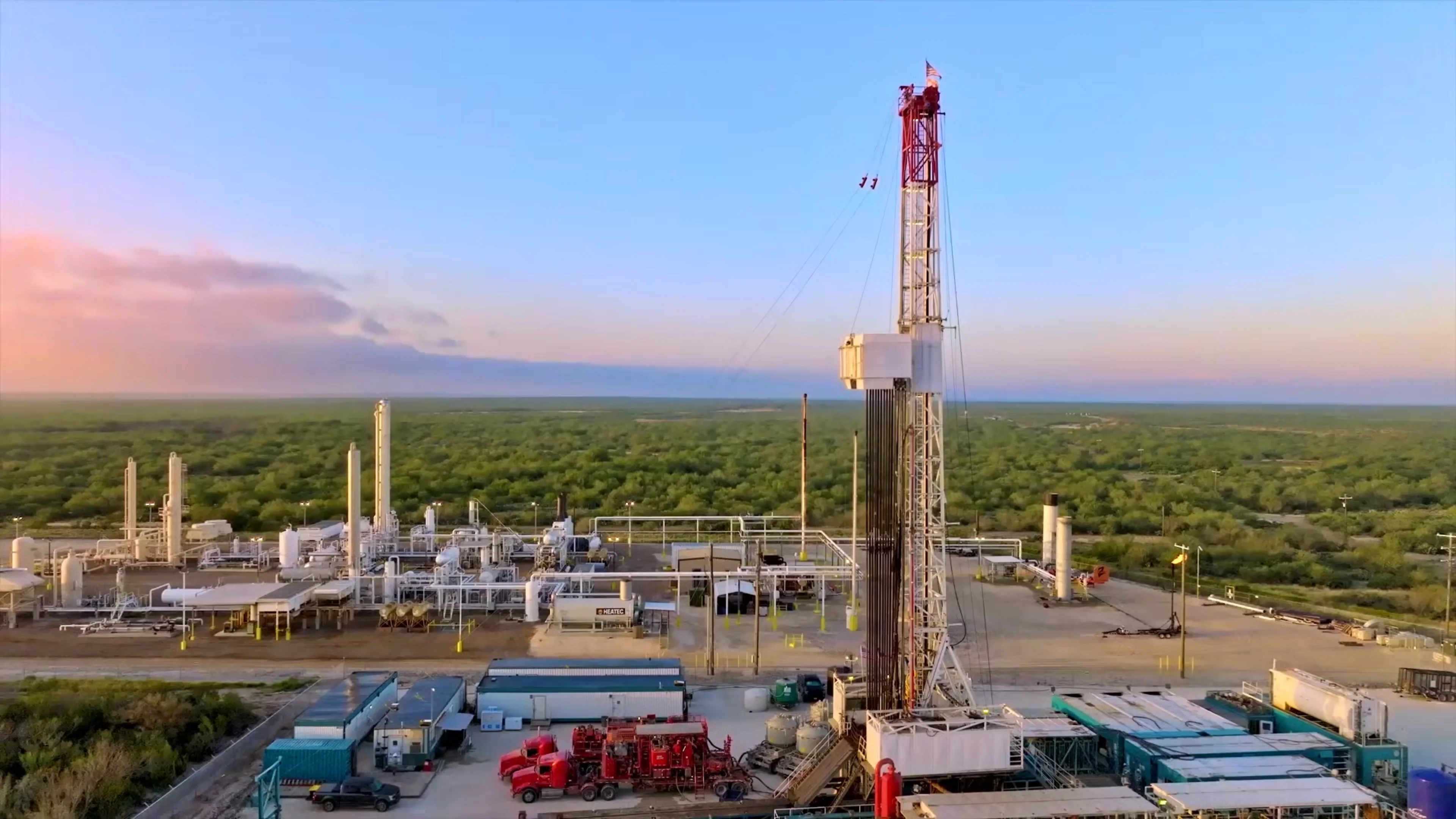

Reduce.
Restore.
Renew.
Sustainability is an evolving cycle.
2024 was a year of bold transformation and measurable progress. Guided by our mission to reduce emissions, advance digital innovation and deliver operational excellence, we achieved meaningful reductions in greenhouse gas (GHG) emissions. At the same time, we sharpened our focus on long-term innovation that supports our environmental goals. Our commitment to environmental accountability isn’t just a responsibility; it’s a catalyst for growth, profitability and resilience in the evolving global energy landscape.

Elements of the cycle.
Sequestering Carbon, Creating Value.
Barnett Zero, our first Carbon Capture and Sequestration (CCS) facility, permanently sequestered approximately 165,000 metric tons of CO₂e in 2024. With 97% uptime, this flagship project demonstrates both our operational strength and the economic viability of CCS. By leveraging available tax incentives, our CCS projects deliver environmental and economic value for BKV and our partners, and with more projects on the horizon, this is just the beginning.

Carbon Sequestered Gas (CSG) Reaches New Success.
In 2024, we completed our first sale of CSG to Kiewit Corporation. This major step pushes CSG forward and validates demand for carbon-neutral energy. CSG represents a permanent, verified solution backed by high-quality, third-party-certified carbon credits that account for emissions across the entire natural gas value chain. CSG combines innovation with accountability for environmental performance in the natural gas market.
Closing the Gap to Net Zero.
Our emissions reduction strategies are purpose-built to help BKV detect, reduce or eliminate GHG emissions from our operated upstream and natural gas midstream businesses. Initiatives like Pad of the Future have already driven substantial emissions reductions, with progress so significant that, after 2024, methane will no longer be our primary source of GHG emissions.
Looping it back to net zero.
Building a sustainable future, one molecule at a time.
Before partnering with BKV, Kiewit Infrastructure South relied on trucks to deliver compressed natural gas to its maintenance facility in South Fort Worth. A subsidiary of one of North America’s largest construction and engineering firms, Kiewit was paying a high premium for that energy, both in terms of distribution costs as well as the large carbon footprint it left behind. BKV’s CSG offers a first-of-its-kind alternative.
“Our partnership with Kiewit is a major step forward on BKV’s net-zero journey.” - Aseem Telang


“Some of our field employees noticed that they were using compressed natural gas for their operations,” said Simon Bowman, Senior Director, Commercial. “We proposed tapping one of our nearby natural gas pipelines with a mile-long extension to transport a sustainable natural gas product directly on site, instead of them trucking it in from Oklahoma.”
For Kiewit, the new infrastructure would reduce costs and provide a more reliable and consistent supply of locally sourced energy while also helping the company achieve its sustainability goals.
Adding a layer of transparency and security, blockchain verification creates an immutable ledger of all transactions, ensuring that every molecule of CSG delivered can be traced back to its source. Third-party organizations, like ACR (formerly the American Carbon Registry) are establishing methodologies for CSG, which are to be implemented by BKV and audited for compliance. In a market where accountability is paramount, this mechanism is intended to reduce risk potentially incurred by Kiewit.

“Our partnership with Kiewit is a major step forward on BKV’s net-zero journey,” said Aseem Telang, BKV Director of New Products. “Just as the demand for energy is ramping up and the industry is trying to build the infrastructure to accommodate, CSG provides a solution that can support development in an emissions-intensive sector and help decarbonize it at the same time.”
The arrangement not only highlights how CSG addresses energy supply needs, but targets carbon emissions reduction across all three scopes. Direct emissions are tackled by providing Kiewit with a reliable, carbon-neutral source of energy (Scope 1), which offsets the amount of energy that would need to be purchased from less sustainable sources (Scope 2), with all the indirect emissions offset through the entire CSG lifecycle (Scope 3), ensuring that Kiewit can claim a reduced carbon credit.
“The great part is, it’s all interrelated in terms of energy management and consumption,” said Telang. “That translates to scope emissions as well. Kiewit’s Scope 3 emissions are BKV’s Scope 1, and vice versa.”
Looking ahead, BKV plans to expand this proven model beyond Kiewit, exploring partnerships with other industries looking to reduce their carbon footprints. As the demand for cleaner energy grows, BKV is well-positioned to lead the way, collaborating to build a more sustainable future.
“We’re not just building it,” said Telang. “We’re building it right.”


